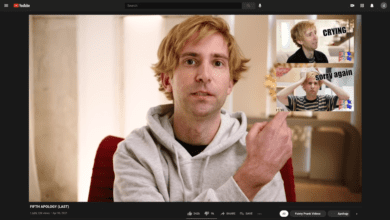
No crisis in Zimbabwe: RBZ
LIVINGSTONE MARUFU
The Reserve Bank of Zimbabwe (RBZ) director of economic research and policy, Nebson Mupunga, has made startling claims that there is no ‘crisis’ in Zimbabwe but only exchange rate volatity.
This is despite the fact that the economy is battling high inflation, foreign currency challenges, liquidity crunch, high cost of production and currency volatility, among many other problems.
The Zimbabwe dollar continues to lose ground against all major currencies.
This week, the Zimbabwe dollar was trading at ZWL$6926. 57 against the United State dollar in the formal market per US$1 ZWL$2577.05 on May 31 2023.
In the parallel market, the Zimbabwe dollar was trading at between ZWL$8500 and ZWL$9 000 per US$1 from ZWL$4800 per US$1.
“I know that the general discussion is about exchange rate volatility, some may want to call it a crisis but I have a different view as I don’t want to call it a crisis but as exchange rate volatility,” Mupunga said.
But CEO Africa Roundtable chairman Oswell Binha said there was a crisis in Zimbabwe.
“The currency crisis, from my own term we call it phase five of value erosion. For me, in my 15/ 20 years of private sector engagement, I’m frustrated that we can’t have another cycle repeating under 10 years.
“For me,the frustration is that it appears that the blame game has continued between government and business,” Binha said.
He said businesses are making serious forex exchange losses and firms were breaking the law to survive.
“… I am also calling on the government to stop the arrogance and come to a roundtable.
“ We are not responsible for money supply, are we”? Binha asked.
“This thing of continuing to blame business that we are credit creating is causing the volatility, I don’t think it means economic sense.”
Economist Tony Hawkins weighed in, saying there was a crisis in the economy.
“The are a lot of factors that are there to classify the current state of affairs as a crisis as there are more challenges than the currency volatility,” he said.
Mupunga explained that if the country has no fiscal deficit and current account deficit, there is no crisis.
“We need to put things into context first as to what causes exchange rate volatility. There are two structures that cause exchange rate volatility.
“The first structure issue is the fiscal deficit if they are monetised by the RBZ. The other structural issue is when the current account is in a deficit,” he said.
Mupunga said in the case of Zimbabwe, if one looks at fiscal deficit, the government has been running a sustainable fiscal position since 2013 thus ruling out the aspect of monetisation.
He said if one looks at the current account deficit since 2019 the country has been running a current account surplus unlike in the past where the country ran an unsustainable current account deficit in excess of 20%.
When a country has a surplus, ideally it should lead to a stable exchange rate, according to the RBZ director.
“A question is why is our exchange rate not stable in an environment where the current account is in a surplus position?
“The challenge we are facing is that of supply and demand dynamics with regards to foreign currency. We have a challenge of dual currency which means people have a choice between a hard currency and a soft currency.
“Everyone is bound to choose hard currency, the notion that the people in South Africa prefer Rand or in Botswana they prefer Pula it’s not true as everyone prefers the hard currency,” Mupunga said.
He said for a currency to be used as a legal tender , the government has to put some rules to legislate on the use of that currency.
Despite having a current account surplus position in 2019, the country has seen that the demand for foreign currency is over and above the normal demand for forex that is experienced in other countries as forex should be reserved for foreign payments.
“But in Zimbabwe forex is used for domestic payments and as a store of value so what we have is unlimited demand for forex. In such an environment where you have unlimited demand for forex, it does not matter what level of money supply we have because even if one has a small amount of ZWL$, he or she will lock up value in US$.
“This will cause the exchange rate to depreciate,” Mupunga said.
He said when there is such a scenario, there is a need to guarantee convertibility and this is what we did in 2009.
Mupunga said the country cannot sustain dollarisation as it kills industry competitiveness and promotes externalization.
“When we talk about dollarisation we need to put things into context as it is measured by the level of forex deposits against the total deposits in the economy.
“When you look at the period between 2009 and 2018, that ratio has been going down.It started at about 90% with 10% being local currency, by 2013 it has gone to around 45% and 2016 it has gone to 12% as a result it became unsustainable,” Mupunga said.
“We should look at sustainability when we are recommending policies to do with dollarisation.How do we ensure that there is indifference between holding the ZWL$ and US$.
“You must be able to compensate the holders of local currency for an exchange rate depreciation.”
Related
Source link











































